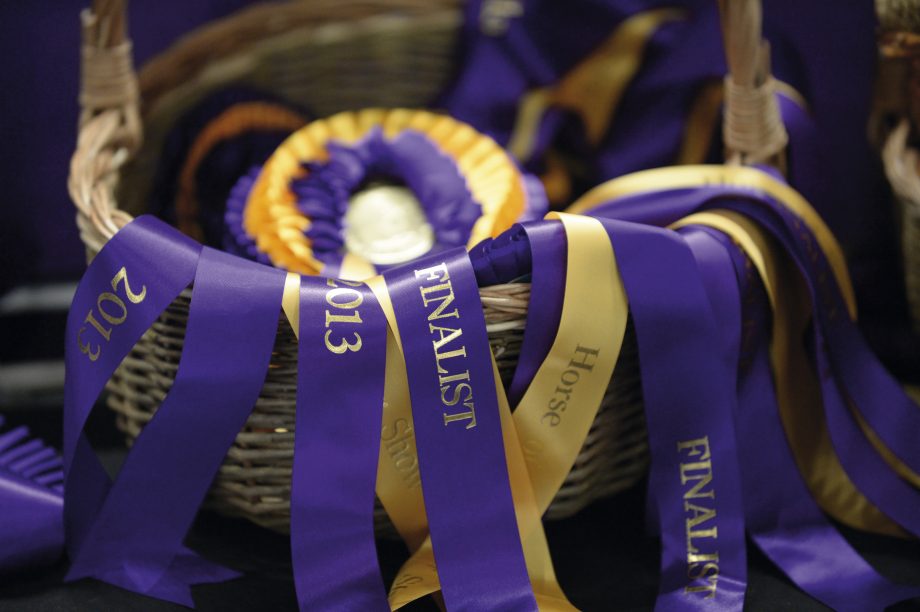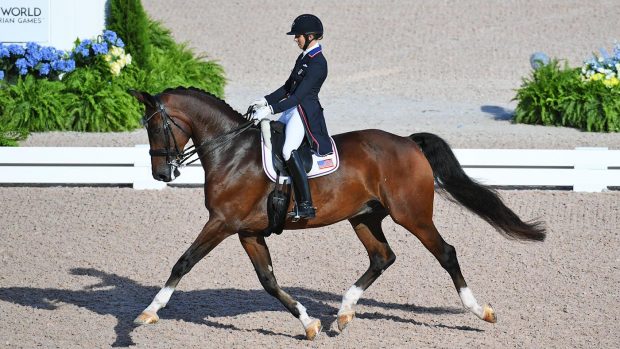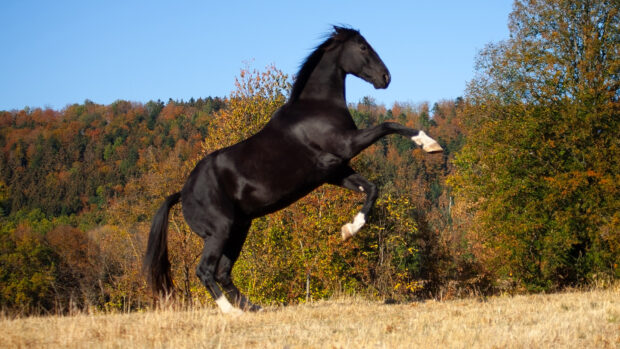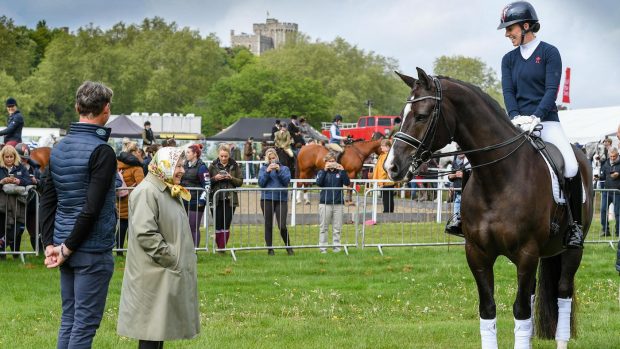Leading show horse producer Robert Walker explains why competitors’ attitudes need to change and judges should feel appointments are a privilege – and a responsibility
IN all honesty, I wasn’t looking forward to writing this column after the sheer amount of negativity surrounding showing I’ve seen recently. I’ve learnt through my career that you’re never going to win every argument. While welfare is always going to be high on the agenda, it’s the attitudes of competitors which are bringing showing down. This needs to change.
I love my job and I adore horses, but the past weeks have been one of the most difficult times I’ve ever known. Bad sportsmanship, negativity and miscommunication between societies and members is rife.
I go over things in my head and wonder what we can do to put things back on track. I try to break down the stages of a showing class and wonder where it’s going wrong. We have a judge in the centre who is ultimately there to make a judgement. We must accept each judge is going to have a different preference to each other and to you.
We all should hope that the cream of the crop will rise to the top and that the best horses on the day will win. But, way of going, movement and expression is always going to be interpreted differently.
When I’m judging I wouldn’t penalise something like a wrong leg so harshly. I’m a rider and I take into account the surroundings and undulation of the ring. I want to see an expressive, quality horse show itself off and I don’t judge a showing class like a dressage test.
However, I fully appreciate that many judges will be the opposite and would not be so forgiving of such an error, and this is absolutely fine.
Similarly, type and conformation are open to subjectiveness. You have a category and within this we have different types. Judges will then have a difference in opinion on movement, suitability and what sort of type they prefer. We enter a show to be judged on the day.
Horses for courses
I DO not think the marks system has helped competitors accept this premise. I constantly hear riders scratching their heads about getting a score some 20 marks apart at different shows. The reason is because you’re performing under a different judge. Having impartial stewards around the shows could be a good move and I would advise societies to welcome this initiative if offered.
Alongside changing competitor attitudes, we need to ensure judges feel that appointments are a privilege and a responsibility. If an individual is skating on thin ice when it comes to being fair and unbiased, then perhaps they need to be called up and either reassessed or asked to step down from their position.
Showing is the only sport where judges do not undergo reassessment at some stage. Perhaps, if a society believes that someone has judged with a strong bias then they’re called in, thanked for their time and sent on their way.
Likewise, if a competitor approaches a judge prior to a class in an inappropriate way in terms of asking for favours, they should be reported.
Everyone should be held accountable.
Nevertheless, we’re only talking about a small pool of judges. I have about three judges who I won’t enter under for this reason. I don’t kick up a fuss – would just not put myself in front of them.
I would never call a judge out on social media as it’s wrong and unprofessional, but it seems that judge bashing is more prevalent than ever. Rather than going home and calling a friend to rant, people are turning to Facebook. When the weather gets hot, our dogs start fighting and it seems that competitors are doing the same. But what’s to gain from this?
I hope competitors will give their heads a shake and realise that this negativity is ruining the joy of the sport. What will we do if we don’t have our major shows to compete at one day?
There is always another day
WE’RE all gearing up for the Royal International Horse Show, our mid-summer championship. I won’t be taking every animal I’ve qualified as it’s a long way for me to travel. The Dublin-style format of judging in the hunters, where each horse in the championship is galloped three times, means that it’s not always a suitable show for a young horse. But I’m looking forward to enjoying the animals and having a good time with friends and family.
● Do you think social media has a positive role to play in showing? Write to us at hhletters@futurenet.com
- This exclusive column will also be available to read in Horse & Hound magazine, on sale Thursday 28 July
You may also be interested in…

Sarah Chapman: ‘Showing is subjective – competitors need to accept that’

HOYS to bring in video for some qualifiers after concerns about judging

‘I shouldn’t have to guess what class I’m judging’: why breed type is key for RIHS judge Erik Mackechnie-Guire

Subscribe to Horse & Hound magazine today – and enjoy unlimited website access all year round
Horse & Hound magazine, out every Thursday, is packed with all the latest news and reports, as well as interviews, specials, nostalgia, vet and training advice. Find how you can enjoy the magazine delivered to your door every week, plus options to upgrade your subscription to access our online service that brings you breaking news and reports as well as other benefits.




